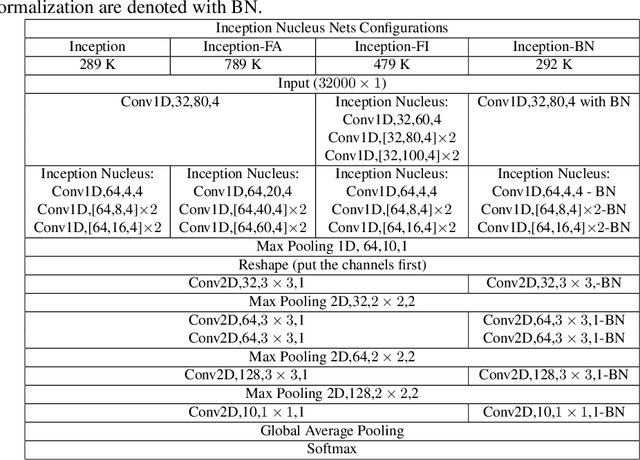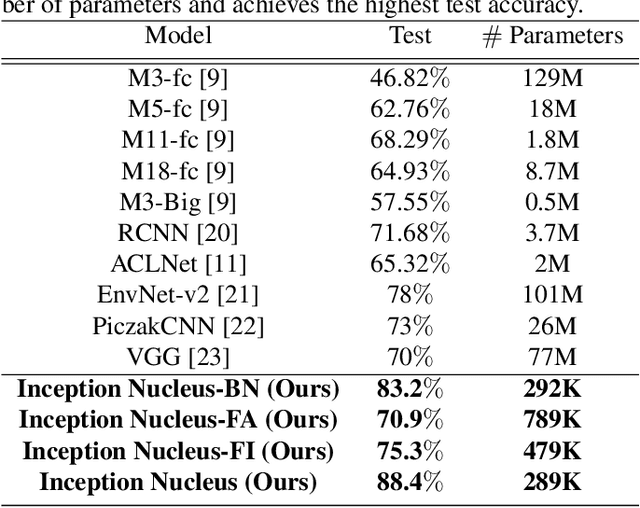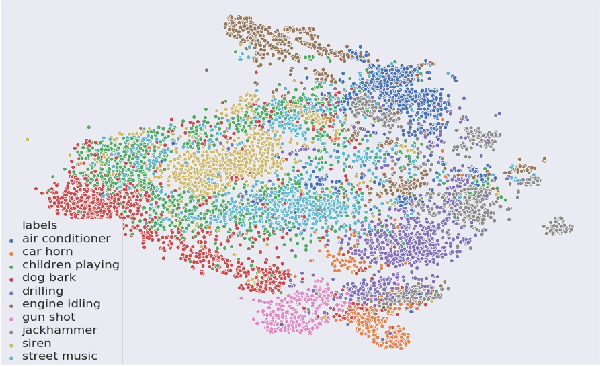End-to-End Auditory Object Recognition via Inception Nucleus
Paper and Code
May 25, 2020



Machine learning approaches to auditory object recognition are traditionally based on engineered features such as those derived from the spectrum or cepstrum. More recently, end-to-end classification systems in image and auditory recognition systems have been developed to learn features jointly with classification and result in improved classification accuracy. In this paper, we propose a novel end-to-end deep neural network to map the raw waveform inputs to sound class labels. Our network includes an "inception nucleus" that optimizes the size of convolutional filters on the fly that results in reducing engineering efforts dramatically. Classification results compared favorably against current state-of-the-art approaches, besting them by 10.4 percentage points on the Urbansound8k dataset. Analyses of learned representations revealed that filters in the earlier hidden layers learned wavelet-like transforms to extract features that were informative for classification.
 Add to Chrome
Add to Chrome Add to Firefox
Add to Firefox Add to Edge
Add to Edge